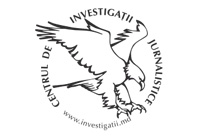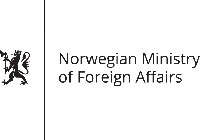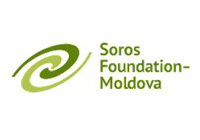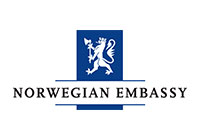.jpg)
Leonid Litra, an expert in international relations and post-Soviet space from Kyiv, spoke in an interview for our newsletter about what the Russian military threat in the region means today, in the context of an increasingly visible Russian militarism. We have discussed the stakes for which Russia is pressing Kiev today and what Western support for Kiev means in this dangerous landscape. The security of the Republic of Moldova through the prism of Russian troops from the Transnistrian separatist region has also been a central topic of our discussions. We are inviting you to read in detail the conclusions of the expert regarding the current security challenges in the region:
What is the current situation in eastern Ukraine? What would mean a viable agreement for Kiev in the negotiations with Russia over the eastern part of the country controlled by pro-Russian separatists?
The current situation is worrying because Ukraine, in the last two years of the current President Volodymyr Zelensky’s term, has made great efforts to stabilize the conflict in the eastern part of the country.
Although Ukraine is not responsible for generating this conflict, big effort has been made, including concessions on its part on certain issues in order to predispose Russia to a more constructive dialogue.
There were a few months of ceasefire which was a relatively stable period. I’m saying relative, because throughout this period there have been victims on the demarcation line. And we have seen lately an escalation of the situation, which is very worrying because, to a certain extent, those efforts that have been made in the last two years are no longer visible because of this situation.
And we also have seen a concentration of forces on the border with Ukraine, which is adding even more tension and nervousness in the conflict resolution process.
How much has changed since the announcement of the Russian troops’ withdrawal from around the borders of Ukraine? Is there still pressure on Ukraine from a military point of view, given that the USA has estimated a withdrawal of only about 20 percent of Russian troops, from 100,000 to some 80,000 soldiers remaining in position?
Yes, such fears exist, the data of Ukraine's partners showing that a large part of these Russian troops remain in positions of potential risk for Ukraine. The only calming thing is that these troops are missing some elements that are part of the attack plan.
One such element is special communication and all sorts of other military elements that are usually part of a plan of attack and are now not visible. However, I think we cannot be reassured about this, because the lesson of 2014 made it clear to us that everything can change very quickly, therefore we need to be vigilant.
This is not just about Ukraine, but about the entire Black Sea area, because there is a very high probability at the moment that the EU and NATO will be directly affected in this area. Because, as you know, Russia has blocked access to the Sea of Azov. It has also strengthened its fleet in the Sea of Azov, bringing 15 attack ships from the Caspian Sea. Therefore, a big part of the coast that de jure belongs to Ukraine is now controlled by Russia. Pressure here is growing and Romania, Bulgaria and Turkey are needed for maintaining a balance of power in the Black Sea region.
Both Ukrainian President Volodymyr Zelensky and Vladimir Putin want to grow in the polls. In Russia, by the way, the parliamentary elections are taking place this autumn. Do you think Putin could push and escalate the tensions over Ukraine? Maybe even militarily - directly or indirectly through the pro-Russian rebels that Russia is controlling in the Eastern Ukraine? Is there a danger here?
I think Vladimir Putin has an image problem, even though he is the most popular politician in Russia. He has an approval rating of about 60 percent, which is a lot for a democratic state, but which is very little compared to what we’ve seen in previous years, when this rating accounted for 75-80 percent.
This has changed after the “Navalny case”, especially in the sector of young voters who are more flexible in political views. Here, Putin will have to calculate very well whether a potential escalation could bring more benefits or not.
I think that what has happened recently was an action with multiple projections in which they wanted to see a few things as a result of the concentration of forces. The first was to test the USA commitment to Ukraine, namely for Russia to see how the new White House administration reacts to possible escalations of tensions in the region. Then, Russia wanted to make Ukraine more flexible in the negotiations with Moscow and also to test domestically how the Russian public opinion reacts to a possible new military campaign in Ukraine. And everyone has realized this time, unlike in 2014, that an attack in Ukraine can no longer take place in an opaque way with unidentified forces.
Now, Russia has to show its cards because otherwise it will not be able to carry out this attack, as Ukraine is no longer the country of 2014. So, many things have evolved a lot.
Regarding Zelensky's political rating, he has consciously promoted a policy of conciliation, even though from my point of view, this is too early to put into practice an electoral slogan of his campaign, namely the end of the war. But that did not add to his image, because concessions were made, but they were not very successful in the way he wanted. Now, as Zelensky's struggle for a new presidential term is being foreshadowed, his steps are becoming more determined.
I am referring here to the case of Viktor Medvedciuk and the attempt to destabilize the Russian network of influence in Ukraine. And not only the case of Medvedciuk, there are several other cases that we can see in the decisions of the Security Council of Ukraine and this has brought a very big plus to Zelensky. If we look at Zelensky's rating before the Medvedciuk’s episode, it has now increased by about 15 percent, which is a very good performance in such a short time.
How do you see Russia's military presence in the Black Sea region? Can we expect an increased military presence in the coming years or not? What does this mean for Ukraine?
The increase in the Russian presence in the Black Sea is guaranteed in the coming years. Russia has tried to put pressure on Ukraine through the two major Ukrainian ports in the Sea of Azov - Mariupol and Berdyansk. Ukraine is exporting a lot through the Mariupol port, which is an important industrial center. The inability to export by sea is a pressure making Ukraine more vulnerable to Russia.
I suspect that Russia has the same intention towards the Odessa port, which is the largest maritime center in Ukraine. The stakes are very high, because this is at present the only functioning channel of Ukraine by sea, which presents a great advantage at the moment.
Therefore, I believe that Russia will try to intensify its presence and here Ukraine will need the support of Western partners, because without joint patrols in the Odessa and the adjacent areas we cannot talk about security in this region.
It will be very good if the NATO summit, which is to take place next month, will be attentive to this issue too. I remember Romania's attempts to focus on this subject, which were not always successful, but now NATO will have to take these aspects into account.
In order to stop the possible aspirations of some ex-Soviet countries on the way to the Euro-Atlantic space, Moscow has made it a practice in the last three decades to open conflicts that are today either frozen or in a latent phase. The question is whether NATO should further support Ukraine, Moldova and Georgia and strengthen ties with these countries, even before accession, despite this Moscow game?
Indeed, this is one of the recommendations we have made in a recent study that we have published here at the New Europe Center in Kiev. This would somehow discourage Russia from using this tool to prevent NATO and EU accession, as Moldova has no ambitions to become a NATO member. But that is not convincing enough for Russia to withdraw its illegally stationed troops in the Transnistrian region.
There is a manual published by NATO, a kind of policy guide from the 1990s, which says that countries that have conflicts on their territories are not eligible for NATO integration. I believe that this decision needs to be reviewed and would even create a strategic ambiguity throughout this discussion.
At the same time, I would like to say that the subject of NATO accession must be treated with the utmost delicacy, because, if we imagine a situation in which Ukraine receives a MAP (Membership Action Plan - a roadmap for accession) and the day after Russia attacks Ukraine, then this MAP is not going to help much, because Article 5 cannot be triggered (also called “the principle of musketeers in which all NATO member states intervene if one of them is attacked).
There must be a well-developed strategy and that is why Ukraine, as you have mentioned in your question, needs support. First, naval support in the Black Sea and then air defense capability as these are Ukraine's weaknesses at the moment.
Moving to the issue of the Republic of Moldova, the Moldovan Minister of Defense, Victor Gaiciuc, said last month that Moldova has nothing to worry about the tensions in the region with Russia. He also said that the Russian-Transnistrian military exercises in the separatist region of Moldova should not be a concern. How do you appreciate this relaxation of the military authorities in Chisinau in this troubled regional context?
I find this statement at least strange; I don't even know if it could fall under the Criminal code or not, but I want to draw a parallel with Ukraine here. Now, Ukraine is investigating the case of the Kharkov Agreement (an agreement signed in Sevastopol between Ukraine and Russia in 2010 granting Moscow this port for 25 years starting with 2017) which were signed by former President Yanukovych.
It is now being investigated whether or not the deputies who voted and then the government that decided to sign that agreement were involved in the betrayal of the country. I think that in recent years, since the independence of the Republic of Moldova from 1991, we have had many such statements that can qualify under this term.
But, beyond the legal qualifications, the Republic of Moldova should be very attentive to what is happening and bother about the illegal Russian forces on its territory. Even the fact that Russia, which claims to be a mediator and a guarantor in the settlement of the Transnistrian conflict, is participating together with the Transnistrian forces in military exercises raises very big questions, including the peacekeeping mission that Moscow claims to be a success. Here, in practice, Russia is doing itself a disservice, because its role as a peacemaker in the region has been very much rumpled by this situation.
How big is the danger coming from Transnistria today for the Republic of Moldova with regard to the security dimension?
It is very difficult to estimate now. And the Russians have big problems in the region, including the fact that the Russian Army is hiring soldiers from the Transnistrian region. The Russian military is also heavily underfunded in Transnistria.
However, even though the capacity of these forces in Transnistria is not good enough, their ability to cause possible damage is very high. Therefore, Moldova needs to think very carefully about limiting the damage in the region.
Also Ukraine is thinking about this. Kiev understands the increase in the military forces in Transnistria and this is only a small danger though very distracting. Ukraine needs to have troops in this area too, in order to prevent the "worst case scenario" coming from the Transnistrian region.
Even the Ukrainian Army has moved troops to the Transnistrian border segment last month, as shown in the pictures.
This seems justified to me. Ukraine has about 3,000 kilometres of land border with Russia and a few hundred kilometres of sea border. In addition to the immediate risk from Russia, there are also troops in the Transnistrian region.
There are also joint troops for exercises in Belarus and Ukraine is in an uncomfortable position. It is virtually surrounded from all sides except for the northeast.
Is there a need for closer cooperation in the military sector between the Republic of Moldova and Ukraine? If so, why and how could this be done?
There is a collaboration between the two countries. It has gained more meaning than until 2014 (annexation of Crimea). Ukraine did not really understand the Republic of Moldova Until then, but it understands it very well now. Moreover, if until now the Republic of Moldova could give advice to Ukraine, now it is Ukraine which can give advice to Moldova.
The first and most important step that was taken was to ban that transit for the supply of Russian troops in the Transnistrian region.
Both Ukraine and Moldova should be interested in ensuring that there is no military outbreak in the Transnistrian region. The Transnistrian elites are making money in this region and are interested in maintaining the status quo, although it is Moscow that has the last word. I hope that this region will remain peaceful, but at the same time, I believe that the Republic of Moldova needs a broader defence programme.
If you look at the defence budget (about 0.39 percent of GDP), it looks like a joke, but it's not. This pays for the salaries and possibly the painting of several walls.
Given that we have such a tense situation in the region, Moldova needs to think more about the expenditures for its defensive capabilities. Moldova does not have them now and that is a big problem. Ukraine and Moldova can now participate in military exercises.
We now have an unfavourable government, with crooked statements, but the situation could soon change a lot. Much will depend on the future political configuration in Chisinau, because in Ukraine there is sympathy for Maia Sandu and a great deal of distrust for existing government. Cooperation is needed at the level of all institutions in Ukraine and the Republic of Moldova.
Thank you for the interview!
Comments
Donors:






Partners:









